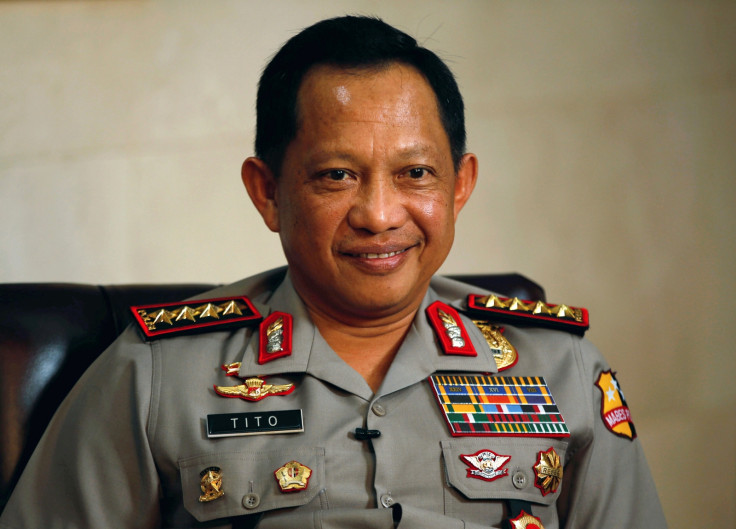Indonesian police closely monitoring about 40 Isis militants returned from Syria
Authorities have detained about 10 of the suspected militants.

Authorities in Indonesia are closely tracking the movement of about 40 militants, who are reported to have returned to the country after serving the Islamic State (Isis) group in Syria, police chief Tito Karnavian said on Monday (17 October).
Police officials in the world's biggest Muslim-majority nation fear the militants would pose a major threat in the region by getting in touch with the local extremists groups and train new set of radicals with the skills and equipment these Isis militants acquired while fighting in Syria.
"We are getting in touch with them but they can evade our detection. We believe they are organising secretly and building interactions with other [radical] networks," Karnavian told Reuters.
Indonesia police have detained about 10 of the suspected militants for inquiring and so far they have reportedly ruled out any imminent attacks from the returned fighters. Under the existing anti-terrorism law in the country, police can detain suspects for up to seven days for interrogation. The government has also been calling to revoke the citizenship of any Indonesian who is found to be fighting for terror groups overseas.
Karnavian also raised concern about the latest trend adopted by the militants to lure teenagers online in an attempt to radicalise them and launch attacks. He said he knew at least 10 such cases of youth radicalisation in Indonesia. Some of the youngsters are even reportedly looking up to the Isis leader Abu Bakr al-Baghdadi after researching about his ideologies online.
"This is a new trend. It's more difficult (to track them) than existing networks... because they are what are called lone wolves that are being radicalized online," Karnavian said.
With a population of about 250 million, a vast majority are a believed to be practising a moderate form of Islam. The Indonesian government has claimed to have largely disbanded extremist groups who are reported to have periodically carried out attacks in the country.
However, earlier in January, Jakarta faced the Islamist insurgency where four pro-Islamic State fighters mounted a gun and bomb attack in the heart of the capital city, killing eight people. The attackers also died when confronted by the police, who claimed the assault was not planned or executed properly.
© Copyright IBTimes 2025. All rights reserved.





















